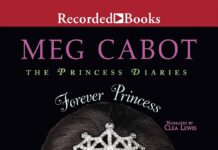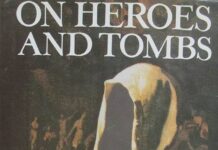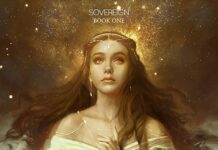In the vast ocean of contemporary young adult literature,Rick Riordan’s The Sea of Monsters sails boldly forward,inviting readers to embark on a voyage where myth and reality intertwine. As the second installment in the famed Percy Jackson & the Olympians series, this novel continues to chart the adventures of its spirited protagonist amidst a world teeming with gods, monsters, and ancient legends reborn. This review delves into how The Sea of Monsters navigates familiar mythological waters while steering toward fresh horizons, examining the narrative’s strengths, its imaginative scope, and the ways it engages a new generation of readers.
Exploring the Fusion of Ancient Mythology and Modern Storytelling in The Sea of Monsters
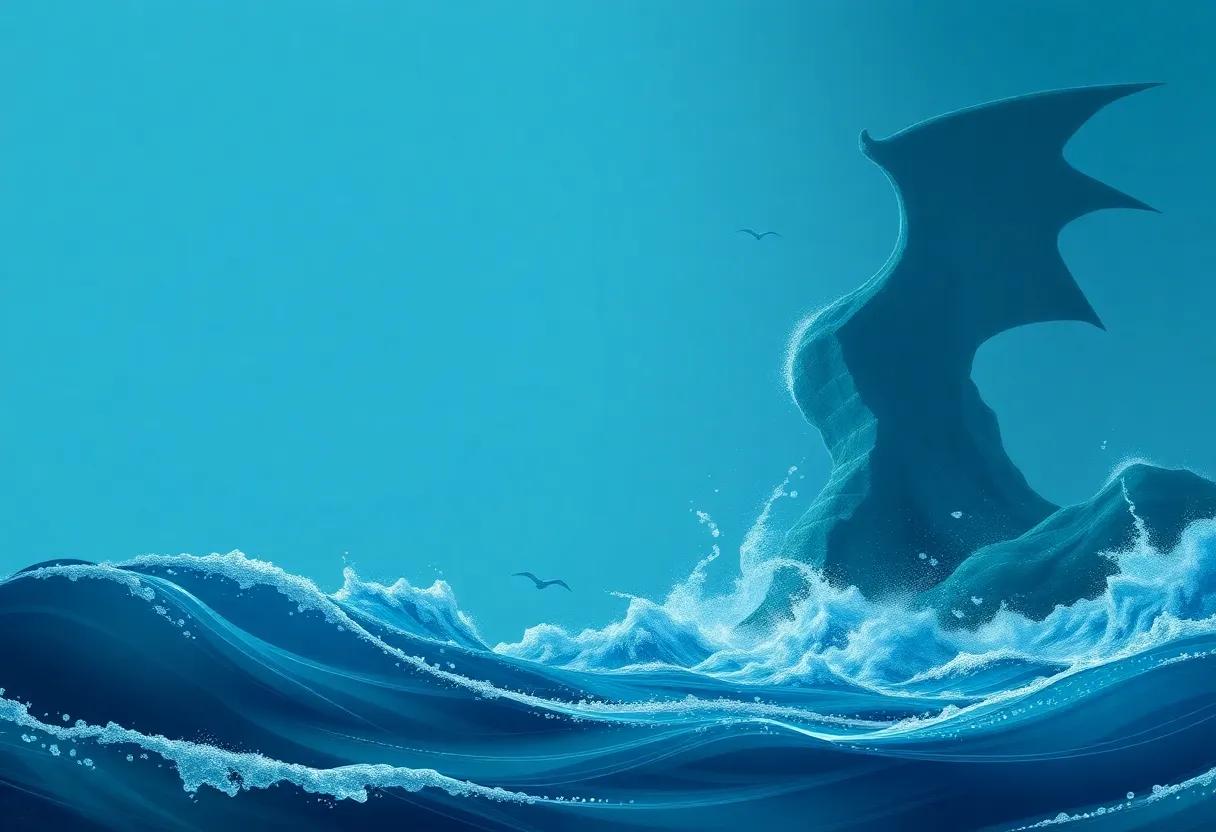
At its core, The Sea of Monsters masterfully intertwines the grandeur of ancient mythology with the pulse of contemporary narrative flair. Riordan breathes new life into timeless deities, monsters, and legendary quests by positioning them within the relatable and often humorous world of modern adolescents.This fusion does not merely retell myths; it reimagines them, allowing readers to traverse familiar mythological landscapes that are peppered with current-day challenges and sensibilities. By doing so, the story creates a vibrant tapestry where tradition and innovation coexist, inviting a diverse audience to engage with these age-old tales through a fresh lens.
The balance between mythological reverence and inventive storytelling is evident in how the characters interact with prophecy,ancient artifacts,and mythical creatures. This is reflected in the book’s structure and pacing, where lighthearted banter and heartfelt moments catalyze epic adventures. Below is a brief comparison highlighting key elements that illustrate this fusion:
Best-Selling Books in This Category
| Element | Ancient Mythology | Modern Storytelling |
|---|---|---|
| Characters | Gods, Titans, mythical beasts | Teen demigods with personal struggles |
| Setting | Enchanted isles, legendary realms | Suburban America, summer camps |
| Conflict | Cosmic battles between good and evil | Friendship, loyalty, identity crises |
| Tone | Epic and solemn | Humorous and accessible |
This synthesis not only educates young readers about mythological history but also resonates powerfully with their real-world experiences. It’s this dynamic blend that elevates The Sea of Monsters beyond a simple fantasy adventure-it becomes a cultural bridge connecting the wisdom of the past with the voice of today’s youth.
Character Development and the Journey of Percy Jackson Through Perilous Waters
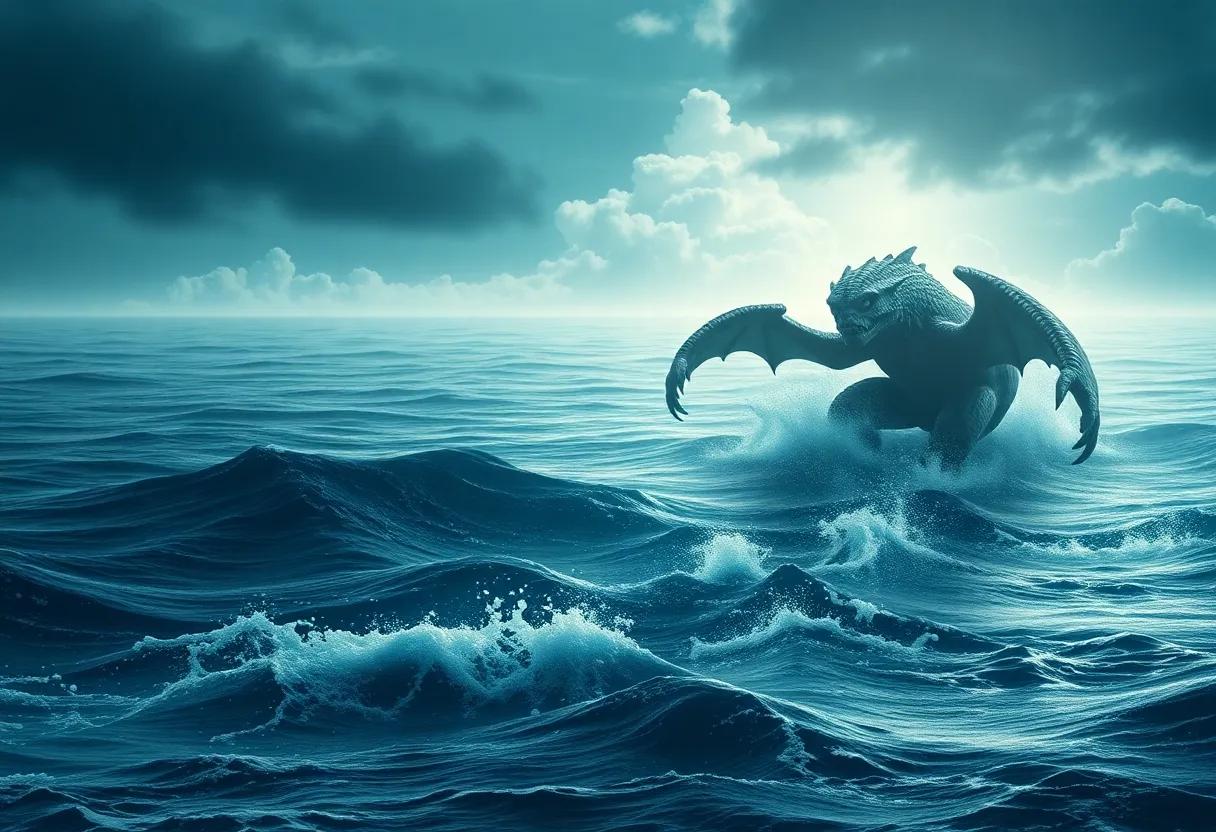
Percy Jackson’s evolution throughout the narrative is a compelling blend of youthful impulsiveness and emerging heroism. Faced with daunting challenges in The Sea of Monsters, his resilience is tested not only by external obstacles but also by internal doubts. As Percy navigates treacherous waters, both literal and metaphorical, we witness a maturing hero grappling with loyalty, responsibility, and the weight of prophecy. His growth is punctuated by moments of vulnerability that humanize him, making his journey relatable rather than mythical. Interactions with allies such as Annabeth and Grover highlight his capacity for trust and leadership, qualities that slowly replace his early recklessness with a newfound sense of purpose.
The adventure is more than a physical battle; it’s a crucible for building character. Key transformations in Percy’s personality are illustrated through:
- Confronting fears: Learning to face creatures and situations once thought insurmountable.
- Accepting flaws: Recognizing his own limitations while still pushing forward.
- Embracing destiny: Slowly acknowledging his role as a demigod within a larger mythological framework.
| Phase | Key Trait | Example |
|---|---|---|
| Early Journey | Impulsive | Charging into danger without full readiness |
| Mid Quest | Resilient | Overcoming betrayal and setbacks |
| Climactic Battle | Leader | Organizing friends and allies against overwhelming odds |
The Role of Friendship and Loyalty Amidst Mythical Challenges in the Narrative
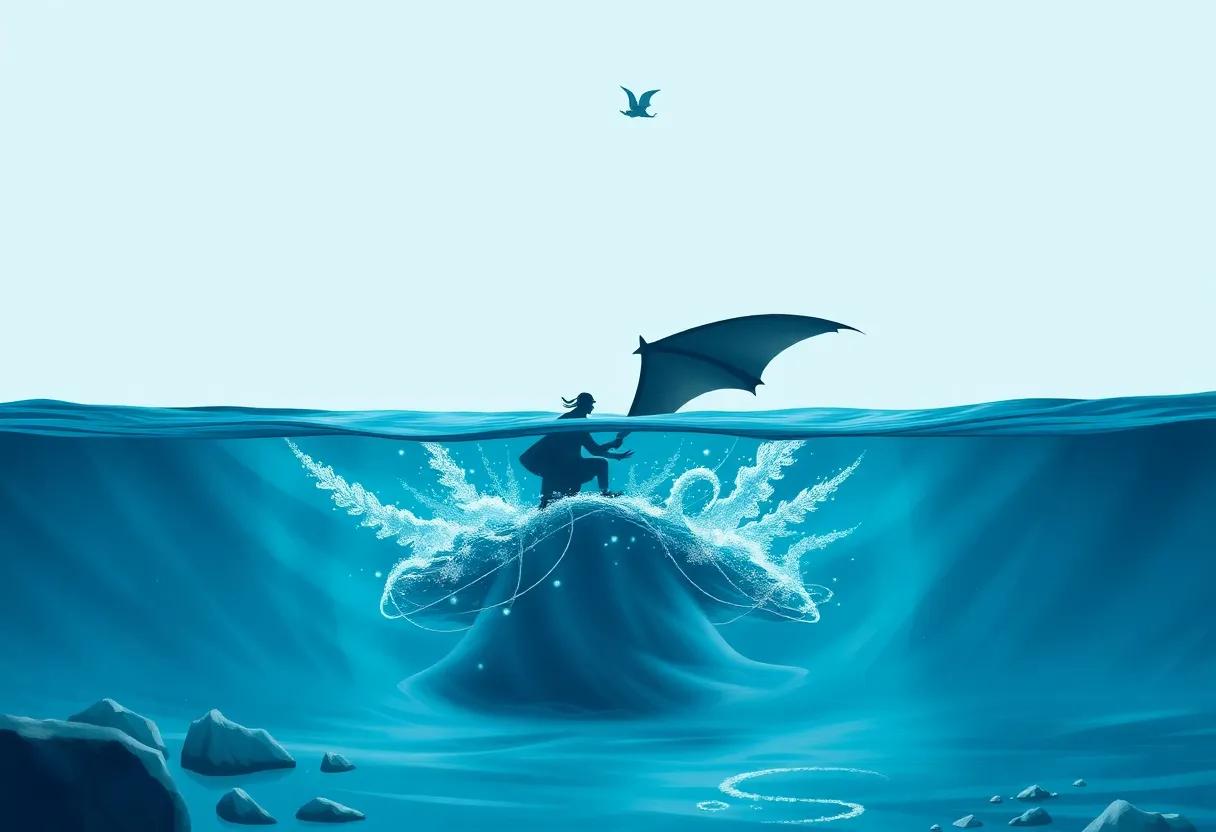
In the midst of treacherous quests and daunting mythical beings,the narrative consistently emphasizes how strong bonds of friendship act as anchors for the protagonists. Riordan masterfully weaves moments where trust and unwavering loyalty become the key to survival, transcending mere companionship to become indispensable strengths. These relationships are not just emotional backdrops but active forces-guiding characters through labyrinthine challenges and uncertain outcomes. The allies, with their complementary strengths and fallible humanity, demonstrate that unity in diversity is essential when confronting the unknown.
Beyond emotional support, the story showcases specific traits that define these friendships and loyalties:
- Resilience: Persisting through setbacks without abandoning one another.
- Sacrifice: Willingness to risk personal safety for collective well-being.
- Honesty: Open communication even when truths are hard to hear.
- Forgiveness: Embracing flaws and mistakes as part of growth.
| Character | Demonstrated Loyalty | Mythical Challenge Faced |
|---|---|---|
| Percy Jackson | Risked life to save brother | Sea of Monsters voyage |
| Annabeth Chase | Maintained faith during chaos | Circe’s island traps |
| Grover Underwood | Guarded friends with courage | Encountered Cyclops |
How Rick Riordan Balances Humor and suspense to Engage Young Adult Readers

Rick Riordan masterfully intertwines wit with tension, creating a reading experience that keeps young adults both laughing and on the edge of their seats. By embedding humor directly into his characters’ dialogues and actions, he forms a connection that feels genuine and accessible. This levity lightens the mood, even during the most intense moments, allowing readers to navigate the darker themes of mythological battles without feeling overwhelmed.Key elements such as speedy comebacks, quirky sidekicks like Grover, and unexpected humorous twists transform daunting quests into enjoyable adventures.
Suspense, however, is never neglected. Riordan employs cliffhangers, escalating challenges, and mysterious plot revelations to maintain a gripping pace. The interplay of humor and suspense can be broken down as follows:
- Character-driven comedy: Natural humor that emerges from personalities rather than forced jokes.
- Strategic pacing: Moments of calm and laughter carefully balanced with peaks of tension.
- Unexpected plot twists: Keeps readers guessing, ensuring sustained engagement.
- Relatable vulnerabilities: Humor humanizes heroes, making their fears and struggles more compelling.
| Humor Elements | Suspense Elements |
|---|---|
| Snarky one-liners | Mysterious quests |
| Light-hearted banter | Impending dangers |
| Comic sidekicks | Time-sensitive missions |
| Playful mythology twists | Cliffhanger chapter endings |
The Symbolism Behind the Sea of Monsters and Its Impact on the Hero’s Quest
At the heart of Rick Riordan’s narrative lies a rich tapestry of allegory woven through the perilous Sea of Monsters. This treacherous ocean is not merely a backdrop for supernatural encounters; it symbolizes the turbulent journey of adolescence and the uncertainty of forging one’s identity. The unsettling waves mirror the unpredictable challenges a hero must navigate,while the monstrous inhabitants represent the fears and internal conflicts that often plague young heroes on their quest. This symbolism intensifies the stakes, transforming the environment into a living, breathing metaphor of growth and resilience.
The impact of this symbolism on the hero’s quest is multi-faceted.Beyond physical survival,the hero must conquer self-doubt,build alliances,and embrace vulnerability-all crucial steps toward maturity.This journey is exemplified in several key elements:
- The golden fleece acts as a symbol of restoration and healing, reminding the hero-and readers alike-that courage often brings renewal.
- Circe’s island serves as a crossroads of temptation and decision-making, highlighting the importance of choice in shaping destiny.
- The loyalty of allies, such as Grover and Annabeth, emphasizes that no quest for identity is completed in isolation.
| Symbol | Meaning | Impact on Quest |
|---|---|---|
| Sea of Monsters | Adolescence’s chaos and fear | Tests emotional and physical courage |
| Golden Fleece | Healing and restoration | Enables revival and growth |
| Camps and Allies | Friendship and trust | supports overcoming isolation |
An Analysis of the Book’s Pacing and Its Effect on Reader Immersion and Excitement
Riordan masterfully balances the narrative tempo, creating a rhythm that propels readers forward without overwhelming them. The pacing accelerates during high-stakes moments, like the daring quests and battle sequences, heightening adrenaline and drawing readers deeper into the mythological world. Conversely, the author allows breathing room through lighter, character-driven scenes that build emotional resonance and provide insight into the heroes’ motivations. This dynamic flow ensures that excitement is sustained throughout the book, keeping readers both engaged and emotionally invested.
- Rapid progression during action scenes
- Strategic pauses for character development
- seamless transitions between tension and relief
To visualize this interplay, the table below outlines how pacing elements contribute to reader immersion:
| Element | Effect on Reader | Example |
|---|---|---|
| Fast-paced battles | Heightened excitement and urgency | Encounter with the Cyclops |
| Character interactions | Emotional connection and depth | Conversations at Camp Half-Blood |
| Descriptive pauses | Creates anticipation and suspense | Exploration of the Sea of Monsters |
Depiction of Mythical Creatures and Their Unique Contributions to the Plot
Rick Riordan masterfully breathes life into mythological beings, turning them into more than just background creatures – thay are pivotal to the narrative’s momentum. From the majestic Hippocampi that escort Percy Jackson across treacherous waters to the enigmatic Charybdis with her deadly whirlpools, each mythical creature is woven into the story with purpose. their appearances are not mere spectacle; instead, they embody the challenges and growth Percy faces along his odyssey. The creatures’ unique abilities and temperaments enrich the world-building, creating a vivid tapestry where ancient legend meets youthful adventure.
These beings also serve to diversify the story’s conflicts and alliances, often blurring the line between friend and foe. here are some standout mythical entities and their distinct contributions:
- Polyphemus the Cyclops: A symbol of brute strength and rivalry, providing a critical obstacle for Percy and his friends.
- Thalia’s Pine Tree: A magical guardian that represents protection and a link to the divine.
- Furies and Sirens: Testing Percy’s wit and resilience with their relentless pursuit and deceptive charms.
| Creature | Contribution | Impact on Plot |
|---|---|---|
| Scylla | Terrifying multi-headed sea monster | Creates high stakes during sea traversal |
| Rainbow Branch | Enchanted weapon used by Percy | Aids Percy against overwhelming foes |
| Luke Castellan (Part Human, Part God) | Antagonist blending mortal and divine traits | Drives central conflict with complex motives |
The Influence of Greek Mythology on Contemporary Adventure Themes and Lessons
Greek mythology serves as a timeless wellspring from which contemporary adventure stories draw their richest inspirations. In Rick Riordan’s The Sea of Monsters, the age-old tales of gods, monsters, and heroes are reinvented to resonate with today’s readers, blending ancient lessons with modern challenges. The narrative commonality lies not just in grand battles or mythical creatures, but in global themes such as bravery in the face of adversity, the importance of friendship, and the relentless pursuit of self-finding. These themes are woven seamlessly throughout the story, allowing readers to grasp life’s perennial lessons beneath the dazzling surface of mythological adventure.
riordan’s work underscores how mythological archetypes continue to shape contemporary storytelling by encapsulating values and ideas that transcend time. The hero’s journey in The Sea of monsters is a prime example,showcasing how classical motifs like quests,prophecies,and divine intervention create a structure that feels both familiar and fresh. To better visualize how these elements interact, consider the following breakdown:
| Mythological Element | Modern Depiction | Lesson Conveyed |
|---|---|---|
| Quest for the Golden Fleece | Jason and the Argonauts’ journey | Perseverance and teamwork |
| Monster Encounters | Perseus slaying medusa | Courage and problem-solving |
| divine Favor and Struggle | Annabeth’s intelligence and guidance | Wisdom and resilience |
Through these lenses, contemporary adventures become more than mere entertainment-they act as modern parables that echo the profound wisdom embedded in greek myths. This harmonious blend keeps myths alive,inviting new generations to explore foundational human experiences in dynamic and imaginative ways.
Recommendations for Readers Seeking a Blend of Fantasy, Action, and Coming-of-Age Elements
For readers eager to dive into a narrative that fuses the fantastical with heart-pounding action and relatable growth, The Sea of Monsters serves as a stellar gateway. The story’s seamless integration of Greek mythology into the modern world crafts an immersive experience where monsters and magic coexist with everyday struggles of identity and friendship. It is this combination that appeals to those craving not just escapism, but a journey of maturation, where heroes evolve not only through battles but through learning resilience, trust, and courage.
Beyond Riordan’s world, if you find yourself captivated by this blend, consider exploring these works that excel in balancing fantasy, excitement, and coming-of-age themes:
- Sabaa Tahir’s An Ember in the Ashes – a rich, brutal journey of survival and defiance.
- Leigh Bardugo’s Shadow and Bone – where dark magic and personal discovery intertwine.
- Patrick Ness’s chaos Walking trilogy – blending dystopia with the challenges of growing up.
| Book | Fantasy Aspect | Coming-of-Age Element | Action Level |
|---|---|---|---|
| The Sea of Monsters | Mythological creatures and quests | Friendship and self-discovery | High |
| An Ember in the Ashes | Ancient empires, magic | Identity and rebellion | Intense |
| Shadow and Bone | Magical powers and intrigue | Finding purpose under pressure | Moderate |
| Chaos Walking | Dystopian telepathy | Coming to terms with loss | Varied |
The Sea of Monsters as a Bridge to Broader Mythological Understanding for Young Audiences
Rick Riordan’s story transcends mere entertainment by opening doors to the rich and complex world of mythology without overwhelming young readers. Through the adventurous exploits in The Sea of Monsters, children encounter mythological figures and legendary creatures that spark curiosity far beyond the pages. This seamless integration of myth into the narrative invites readers to recognize the timeless relevance of these ancient tales and encourages a natural progression toward exploring classical mythology in greater depth. By presenting gods, monsters, and quests in a relatable, fast-paced format, Riordan plants the seeds for lifelong interest in cultural history and storytelling traditions.
The book’s rich tapestry of mythological references also highlights vital themes such as bravery, friendship, and identity, making ancient myths accessible and emotionally resonant for young audiences.The combination of familiar school-life struggles with epic mythic challenges allows readers to connect personal growth with legendary heroism. A brief overview of the key mythological elements introduced in the story is summarized below:
| Element | Description | Mythological Origin |
|---|---|---|
| Golden Fleece | A magical artifact that protects Camp Half-Blood | Greek Mythology – Jason and the Argonauts |
| Cyclops | One-eyed giants who pose dangerous threats | Greek Mythology - Polyphemus |
| Chiron | A wise centaur who mentors demigods | Greek Mythology – Centaurs |
| Sirens | Enchanting creatures whose song lures sailors | Greek Mythology - Homer’s Odyssey |
By blending education with adventure, the novel not only entertains but also acts as a vital stepping stone for young readers eager to dive deeper into the mythological world.
Examining the Use of Setting to Enhance the Sense of Danger and Wonder in the Story
Rick Riordan masterfully crafts environments that oscillate between mesmerizing beauty and foreboding peril, plunging readers into a world where danger and wonder coexist. From the murky depths of the Sea of Monsters itself to the enchanted boundaries of camp Half-Blood, the settings act as characters in their own right, shaping the narrative’s tension and magic. Each locale is layered with mythological significance, making the exotic feel tangible and immediate. As an example,the Sea of Monsters isn’t merely a treacherous expanse of water-it’s a living entity filled with unpredictable threats like deadly sirens and sinister whirlpools,inviting both awe and dread. This dynamic landscape pulls protagonists-and readers-into a relentless dance between survival and discovery.
The juxtaposition of vivid scenery against lurking menace is skillfully enhanced through subtle details and sensory cues. Consider these elements that heighten the story’s atmosphere:
- Visual contrasts: shimmering, inviting waters suddenly spoiled by swirling shadows and monstrous shapes beneath the surface.
- Auditory cues: the haunting songs of sirens blending with the dangerous roar of crashing waves.
- Physical sensations: salty sea spray mingling with the bracing chill of submerged ruins.
| Setting | Sense Evoked | Mythic Element |
|---|---|---|
| Camp Half-Blood | Safe Haven with Underlying Threat | Protective Magic Boundaries |
| Sea of Monsters | Unpredictable Danger and Majesty | Monstrous Creatures & Ancient Waters |
| The Lotus Hotel | Tranquil Illusion Masking Entrapment | Time-Dilation Myth |
This intricate use of setting not only amplifies the perils confronting Percy and his companions but also enriches the reader’s engagement,making the mythical world pulse with life and uncertainty. By weaving wonder tightly with danger at every turn, Riordan ensures that the adventure remains as immersive as it is thrilling.
The Book’s Contribution to the Popularity and Accessibility of Mythology in Youth Literature
Rick Riordan’s The Sea of Monsters acts as a vibrant gateway to the rich tapestry of mythology for young readers, blending ancient tales with modern adventure in a way that feels both fresh and accessible. By reimagining classic myths through the lens of relatable young protagonists, Riordan bridges the gap between archaic stories and contemporary youth culture. This fresh perspective invites readers to engage with mythological themes-like heroism, family, and destiny-without the intimidation often associated with traditional texts. The book’s playful yet respectful adaptation encourages curiosity, inspiring young minds to explore the roots of these timeless stories beyond the pages.
Moreover, the structure and style of the novel facilitate accessibility by incorporating humor, fast-paced narratives, and a cast of diverse characters that resonate with modern youth. Through easily digestible language and dynamic storytelling,Riordan effectively democratizes mythology,transforming it from a specialized academic subject into an enjoyable adventure for all readers. Below is a quick snapshot of key elements that contribute to its widespread appeal:
- Relatable Characters: Young demigods with familiar struggles and emotions.
- Modern Setting: Mythical tales set against contemporary backdrops and scenarios.
- Interactive Plot: Cliffhangers and action-packed sequences that keep readers hooked.
- Educational Elements: Embedded lessons on mythological creatures and gods without heavy exposition.
| Feature | Impact on Youth Readership |
|---|---|
| Humorous tone | Increases engagement and relatability. |
| Mythical Creatures | Stimulates imagination and curiosity. |
| Fast-Paced Adventure | Maintains reader interest and momentum. |
| Contemporary Dialog | Makes ancient myths feel relevant today. |
A Closer Look at Rick Riordan’s Background and His Role in Revitalizing Mythological Fiction
Rick Riordan is more than just a bestselling author; he is a storyteller who has expertly bridged ancient myths with the modern world.Before penning his famous Percy Jackson & the Olympians series, Riordan drew on his experience as a middle school teacher, developing a unique ability to channel young readers’ imaginations through lively, relatable characters. His personal fascination with mythology combined with his natural gift for humor and pacing transformed what could have been dusty ancient tales into vibrant, fast-paced adventures that resonate deeply with today’s youth.
His influence on contemporary literature is undeniable. By infusing classical myths with modern language and issues, Riordan revitalized an entire genre, making mythological fiction accessible and exciting for a new generation. This revitalization is evident not just in his novels but also in the growing trend of myth-based stories in popular media. Below is a quick overview of elements that highlight Riordan’s impact:
- Relatability: Blends ancient gods and heroes with modern teenage struggles.
- educational Value: Sparks interest in classical mythology through entertaining storytelling.
- inclusive Characters: Introduces diverse backgrounds and perspectives.
- Pop Culture Integration: Uses contemporary slang and references to engage younger audiences.
| Aspect | Riordan’s Contribution |
|---|---|
| genre Innovation | Blending mythology with modern adventure |
| Audience Reach | Youth and young adults worldwide |
| Impact on Education | Encouraged mythological literacy |
| Media Adaptations | Books, films, and graphic novels |
The Sea of Monsters serves as a vivid voyage through the vivid landscapes of myth and friendship, inviting readers to embark on an adventure that is as much about self-discovery as it is about battling the ancient forces of legend. Rick Riordan’s blend of humor, heroism, and heart ensures that this tale resonates beyond its pages, making it a noteworthy chapter in the modern mythic canon. Whether you’re a seasoned fan or a newcomer dipping your toes into the demigod world, this installment offers currents both familiar and fresh-guiding you through its depths with a steady hand and a storyteller’s flair.




